Alan MacPherson’s talent with a shinty stick earned him a number of honours in the ancient sport.
But it’s his skills off the field that are not only keeping an endangered craft alive, but are also vital for the game itself.
As Scotland’s only full-time maker of camans, or shinty sticks, the future of the sport is literally in Alan’s hands to a large extent.
A craft at risk
His company Tanera Camans makes 1,200-1,400 sticks a year – that’s around 80% of the entire output in Scotland.
Listed as a critically endangered art by the Heritage Crafts Association in 2019, it was at risk of dying out altogether.
“It is a responsibility”, said Alan. “But it’s a labour of love.
“This is not really a business venture for me. I’m doing this because I want to see the sport I’ve been involved in since I was a young boy grow in Scotland.”
The importance of craft skills was recently highlighted on the BBC show The Repair Shop on the Road when shinty and caman making were shown to a national audience.
It was a chance for Alan to showcase the game he is passionate about.
He won honours playing at primary and secondary school level as well as in junior events.
As a senior player he helped Lovat win a number of trophies including the MacTavish Cup in 2014.
A passion started aged 12
Now a shinty coach, his fascination for camans began aged 12 when he began fixing sticks for the Lovat team for £2.50 a time.
After setting up his own joinery business, he started experimenting with caman making as a hobby in a 8ft by 8ft shed in his garden.
“As a player it was difficult to get a stick made, and to get one specifically made for you was even more difficult.
“Someone then suggested I make them myself and that rekindled something I started when I was 12.
“There was a lot of trial and error and a lot of broken wood before I finally made a shinty stick.”
His first major order was in 2013 for 30 hybrid sticks for a match between Scotland shinty players and Ireland hurlers.
The following year he took over Tanera Camans, initially making sticks in the evenings and weekends while still working on building sites.
In 2019 he gave up the joinery business to make the hobby a full-time job.
At that stage there were just two professional caman makers in Scotland, along with four keen amateurs.
Keeping shinty players supplied at home and abroad
Alan is now the only one working full time, assisted by joiner friend Ian Fraser, turning out 20-30 camans a week from a workshop at his late grandfather’s croft at Kilmorack near Beauly.
He uses hickory imported from the US, each caman taking 30 different processes and two-and-a-half hours to make.
The finished articles come in six different lengths for use by players in four different positions.
They sell to around 50 teams and 4,000 registered shinty players in Scotland, as well as abroad.
In the past 10 years Alan has also sent camans to other parts of the UK, the US, Canada, Spain, France, Italy and even Russia.
They cost £87 for the adult version and £60 for children’s sticks.
By comparison, a cricket bat can cost around £680, a baseball bat £190 and a pool cue £390.
Prices are kept as low as possible with the help of a sister business Shinty World Alan runs from his home in Inverness.
He set up the shop just after Covid in memory of his grandfather David Fraser who died around that time and was a driving force behind the business.
Shop has been a lifeline
Alan sells everything from shinty equipment to trophies and books and built his own website using YouTube tutorials.
His partner Donna manages the office, assisted by their daughter Jenna, 18, while son Lewis, 11, helps in the workshop.
“The shop has been a lifeline”, says Alan. “There is not enough business in the caman making itself.
“You can only make as many sticks as required by the sport. So shinty would need to grow before I could up my output.
“It also helps keep the prices as low as possible. An increase in price would be justifiable but I honestly think it would kill the sport.”
So the endangered craft is currently in good hands, but what about the future?
Alan, 43, believes there should be support available to train the next generation of caman makers.
“There should be some sort of help or recognised scheme to train someone up.
“I looked for support with this when starting but there was nothing available as it didn’t fall under any particular framework – would it be joinery, furniture maker, boatbuilder etc?
“In the end I trained Ian myself.
New craftsmen on the way?
“Ian, like me, has taken a cut in wages to pursue this career, I am just hoping the benefits are long term.
“We also both have kids who already are taking an interest at the workshop.
“So who knows, perhaps one day they might want to follow in our footsteps.”
For more Inverness news and updates visit our dedicated page and join our local Facebook group.
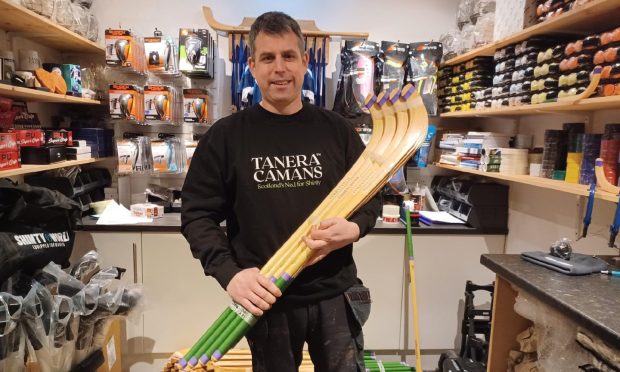
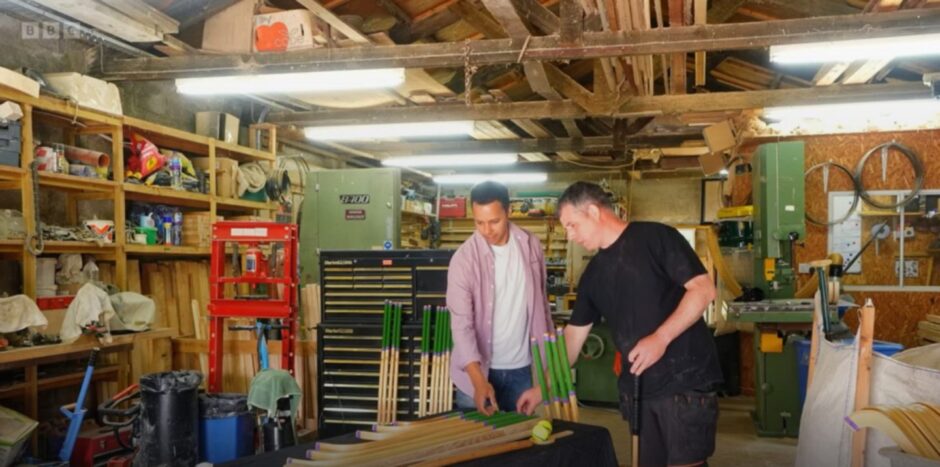
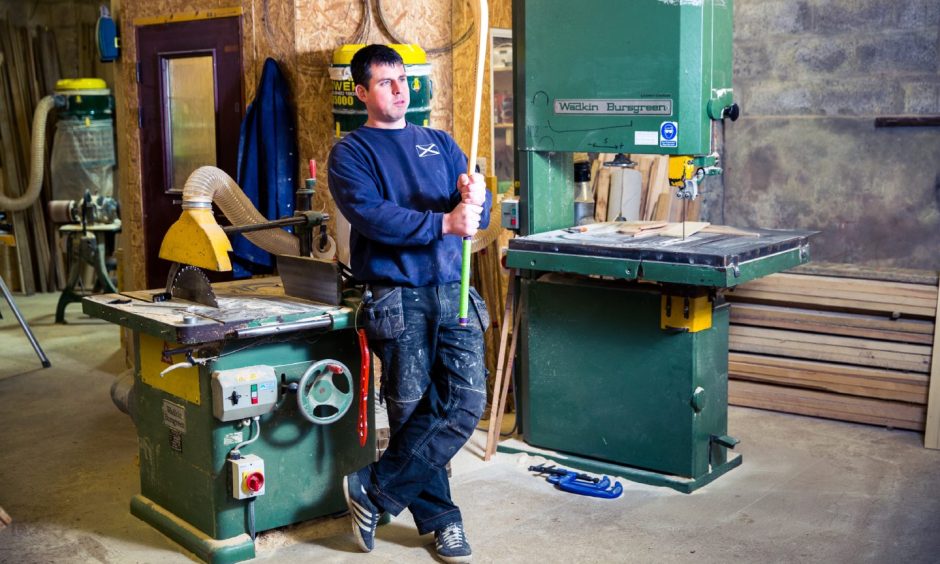
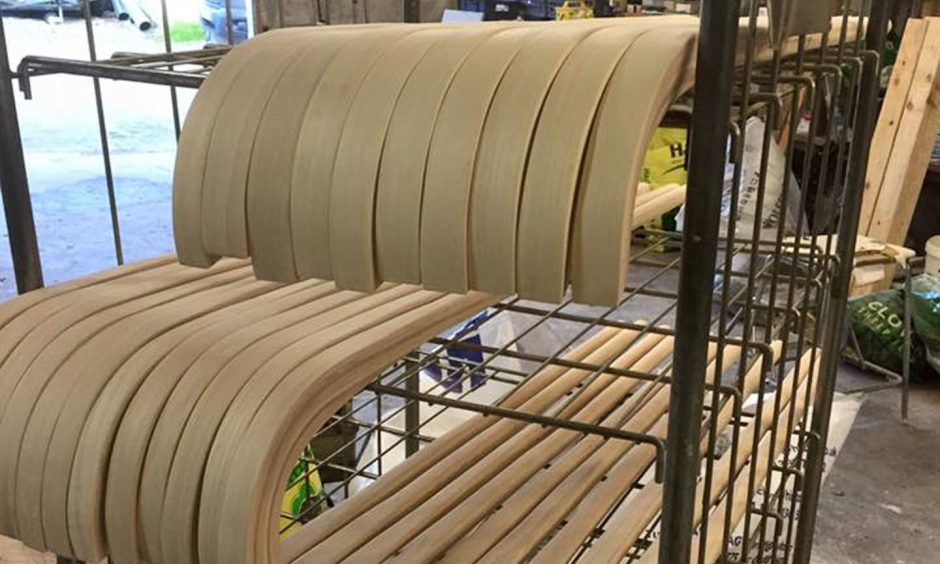
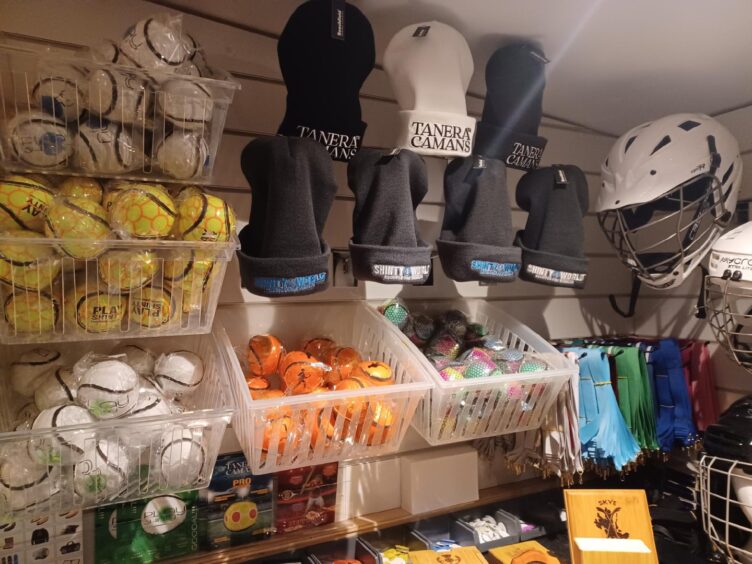
Conversation